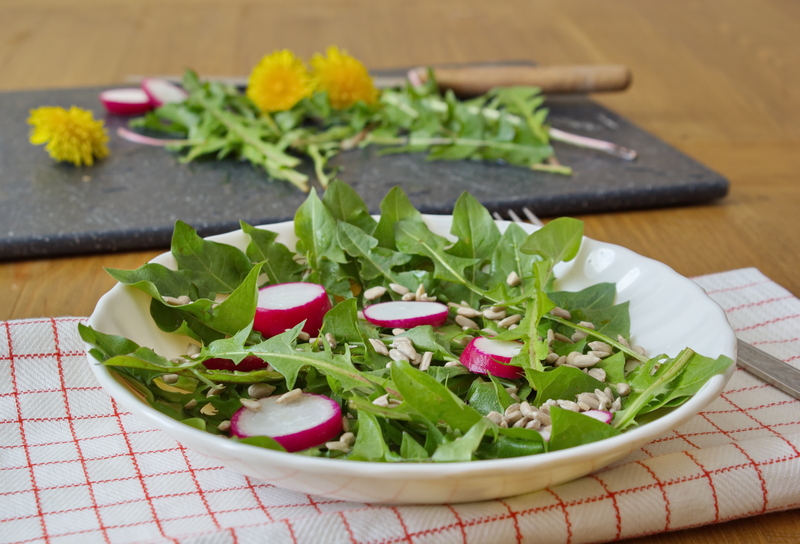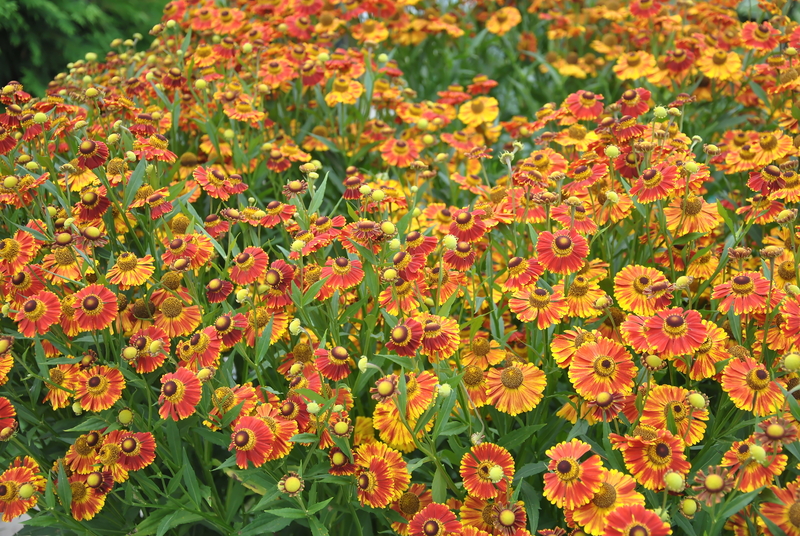Organic Waste: Garden's Best Activator
Posted on 13/08/2025
Organic Waste: Garden's Best Activator
Transforming your garden into a flourishing, sustainable ecosystem starts with understanding the secret ingredient: Organic Waste. Every household generates an abundance of biodegradable materials, often discarded without realizing their immense potential to rejuvenate soil and stimulate robust plant growth. This comprehensive guide explores how organic waste functions as a potent garden activator, enhancing the vitality of your outdoor space while fostering a sustainable lifestyle.
What is Organic Waste?
Organic waste refers to biodegradable material derived from living organisms, such as plants and animals. This includes kitchen scraps, yard clippings, leaves, paper, and even certain types of manure. When processed correctly, these materials break down into nutrient-rich compost, acting as a natural soil amendment. Unlike inorganic or synthetic inputs, organic waste promotes a balanced ecosystem, boosts soil health, and sustains long-term productivity.
Common Types of Organic Waste in Gardens
- Vegetable and fruit peels - Potato skins, banana peels, apple cores, etc.
- Coffee grounds and tea leaves - Residue from your daily brews.
- Eggshells - Crushed for added calcium.
- Grass clippings - Fresh or dried clippings from lawn mowing.
- Leaves and prunings - Autumn leaves, trimmed branches, or spent flowers.
- Wood chips and sawdust - From untreated wood only.
- Manure - Herbivore droppings (cow, horse, sheep) for a nutrient boost.
- Paper products - Uncoated, shredded newspaper or cardboard.

Why is Organic Waste the Ultimate Garden Activator?
The term 'garden activator' refers to substances or processes that stimulate biological activity in the soil, enhancing nutrient cycling and plant growth. Organic matter is unrivaled in this role. When incorporated into your garden, it offers multiple benefits that no synthetic fertilizer or chemical can match.
Key Benefits of Using Organic Waste in Your Garden
- Soil Structure Improvement: Adding composted organic material increases soil porosity, allowing roots to penetrate easily and promoting optimal air and water retention.
- Nutrient Enrichment: Organic waste decomposes to release essential nutrients--such as nitrogen, phosphorus, and potassium--slowly over time, ensuring plants get a steady supply.
- Enhanced Microbial Activity: The breakdown of organic waste attracts beneficial microbes, fungi, and earthworms, which are crucial for nutrient cycling and plant health.
- Reduced Waste in Landfills: Diverting organic material from landfills reduces methane emissions and environmental impact.
- Natural Pest Suppression: Healthy, organically enhanced soils yield more resilient plants and can increase populations of natural pest predators.
How to Use Organic Waste as a Garden Activator
Utilizing household and garden organic waste is simpler than many think. By integrating composting practices into your routine, you can harness the full potential of organic matter for your garden.
1. Composting Methods: Turning Waste into Black Gold
Composting is the controlled decomposition of organic material, resulting in nutrient-rich humus ideal for gardening. Here are several methods to suit different households and needs:
- Traditional Pile Composting: Collect kitchen scraps and yard trimmings in a heaped pile, turning it monthly to accelerate decomposition. This method requires space and a balance of 'greens' (nitrogen-rich items like food waste) and 'browns' (carbon-rich materials like dry leaves).
- Compost Bins/Tumblers: Enclosed bins or tumblers make composting tidy and fast, minimizing rodent access and controlling odors.
- Vermicomposting: Using worms (often red wigglers), this technique processes small-scale organic waste efficiently, producing highly potent vermicompost or 'worm castings'.
- Bokashi Composting: A Japanese method that ferments kitchen waste with the aid of specific microorganisms before adding it to traditional outdoor compost heaps or burying it directly in garden beds.
2. Mulching with Organic Waste
Mulching involves spreading organic materials such as grass clippings, shredded leaves, or straw directly over the soil surface. This conserves moisture, suppresses weeds, and as the mulch breaks down, it gradually feeds the soil.
3. Direct Soil Amendment
Some organic wastes, like chopped leaves, well-rotted manure, or fine kitchen scraps, can be directly worked into garden beds, especially before planting. Over time, they decompose in situ, enriching the soil below.
The Science Behind Organic Waste Activation
Why is organic waste such an effective soil activator? The answer lies in its ability to stimulate the life teeming in healthy soil. Here's what happens:
- Organic matter feeds soil microbes, which break down the material and convert it into plant-available nutrients.
- Microbial activity increases soil structure, aiding in root development and water infiltration.
- Humus created through decomposition binds soil particles together, preventing erosion and compaction.
- Earthworms and other beneficial fauna further enhance soil aeration and nutrient cycling.
Soil rich in organic matter is dark, crumbly, and alive--capable of supporting lush, healthy plants without reliance on artificial fertilizers.
Best Practices for Composting Organic Waste
Balancing Carbon and Nitrogen (C:N Ratio)
To create the ideal compost, aim for a carbon:nitrogen ratio of roughly 30:1. Browns (dry leaves, straw, cardboard) are high in carbon, while greens (kitchen scraps, grass clippings, manure) are rich in nitrogen.
- Too much carbon? Compost slows down and becomes dry.
- Too much nitrogen? Compost can become slimy and smelly.
- Mix both for efficient, odor-free decomposition.
Chopping and Shredding
Break organic materials into smaller pieces. The increased surface area enables faster decomposition by microbes.
Moisture and Aeration
Keep the compost pile as moist as a wrung-out sponge. Inadequate moisture halts microbial activity, while excess water leads to anaerobic (smelly) conditions. Regularly turning the pile introduces oxygen, which accelerates the process and prevents foul odors.
What Not to Compost in Home Gardens
- Meat, fish, and dairy products: These attract pests and cause odors.
- Oily or greasy foods: Difficult to decompose, also attract animals.
- Sick plants or weeds with seeds: Risk of spreading diseases or weeds.
- Pet feces: May contain harmful pathogens.
- Treated wood or glossy paper: Contains chemicals unsafe for the garden.
Advanced Tips for Using Organic Waste Successfully
Diversify Your Input
Use a mix of kitchen, yard, and even some agricultural organic wastes. The richer and more varied your compost, the broader the array of nutrients available to your plants.
Apply Finished Compost Regularly
Top-dress your garden beds and around trees with matured compost every season. This replenishes nutrients, improves soil health, and sets the stage for vigorous growth.
Start a Community Composting Project
If you lack space or want to amplify your impact, join or initiate a neighborhood composting scheme. Collaborative organic waste management reduces landfill burden and provides ample compost for all participants.
Frequently Asked Questions (FAQs) about Organic Waste and Gardens
1. How long does it take to turn organic waste into usable compost?
Under ideal conditions--balanced inputs, moisture, and aeration--compost can mature in as little as 2-4 months. Colder or dry climates may extend this timeframe. Chopping materials and frequent turning speed up the process.
2. Can all organic waste be composted?
Most plant-based kitchen and garden scraps are compostable, but avoid animal products, pet waste, and chemically treated materials.
3. Does organic waste compost attract pests?
If managed properly, with the right balance of "greens" and "browns" and regular turning, a compost pile won't emit strong odors or invite pests.
4. How often should I apply organic matter to my garden?
Generally, apply compost (or other homemade organic amendments) once or twice annually, ideally before planting and after harvest. Root and perennial beds may benefit from spring and fall applications.

The Environmental and Economic Advantages of Organic Waste
- Reducing Landfill Volume: Organic materials make up a significant portion of household waste. Composting them cuts down on trash and helps mitigate methane emissions from landfills.
- Sustainable Soil Fertility: Avoiding chemical fertilizers reduces pollution in waterways and builds healthier, longer-lasting soils.
- Financial Savings: Homemade compost eliminates ongoing fertilizer purchases, making gardening more cost-effective and eco-friendly.
- Restored Ecosystems: Amended soils support pollinators and wildlife, reconnecting fragmented urban and suburban environments.
Conclusion: Activate Your Garden's Potential with Organic Waste
The journey towards a lush, resilient, and sustainable garden begins at your kitchen counter and backyard. Organic waste is truly the best activator your garden could wish for--nourishing the soil, enhancing biodiversity, and empowering you to make an environmental difference with every peel and clipping. By adopting smart composting strategies and consistently adding organic matter, you can revitalize even the most depleted soils, reduce waste, and harvest healthier, more delicious produce.
Start Today: Transform Waste, Grow Wonders
- Begin segregating your organic waste now for a thriving, productive garden.
- Experiment with different composting techniques to find what suits your space and lifestyle.
- Share excess compost with neighbors, local schools, or community gardens for positive impact beyond your own backyard.
- Keep learning--nature's cycle of growth and decay is the garden's greatest teacher!
By turning today's organic waste into tomorrow's garden gold, you'll value every scrap and build a legacy of abundance, sustainability, and beauty in your patch of earth.
Embrace organic waste--the garden's best activator--and watch your garden, and the planet, flourish.
Latest Posts
Unlock the Full Potential of Your Garden with These Tools
Empowering Tips to Keep Garden Plants Secure in Winter
Boundless Adventures: Child-Friendly Garden Ideas Unveiled

